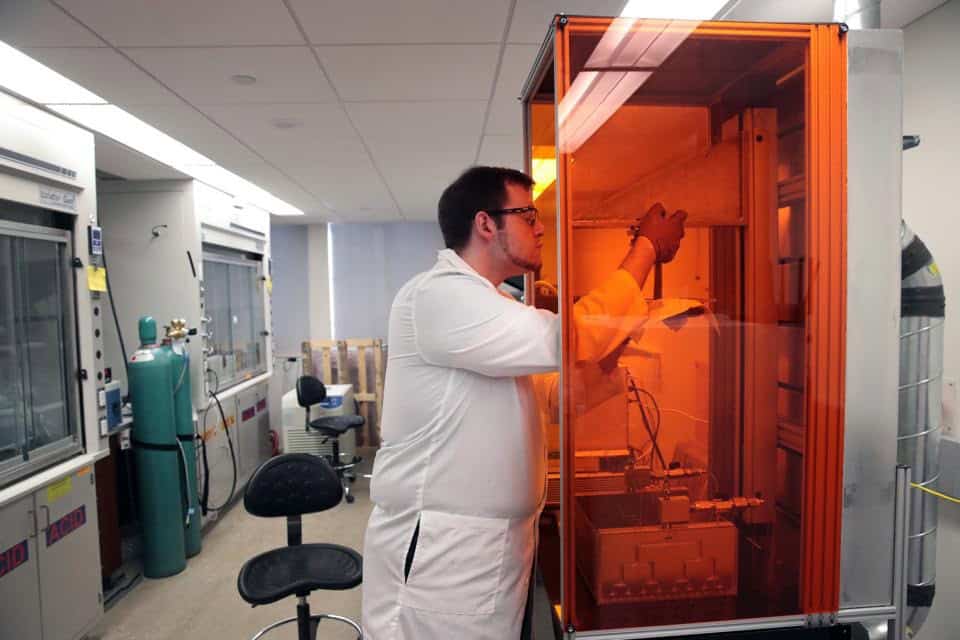
Healthcare is a large and growing industry in the U.S., offering opportunities for professionals from a variety of disciplines and backgrounds amid a difficult overall job market.
As concerns increase about the outlook for the job market, one bright spot continues to be the healthcare industry, which the U.S. Bureau of Labor Statistics predicts will see a much faster rate of job growth than overall employment trends. Adding to that, among the top 25 jobs in a recent Indeed survey, six of them are in healthcare, with positions such as veterinarian, physician, and registered nurse. But what if you haven't gone to medical school or your background and skills have nothing to do with patient care?
Based on my corporate career, including as chair and CEO of Baxter International, a $12 billion healthcare company, I know first-hand the opportunities that can be pursued by professionals with a variety of backgrounds — from finance to marketing, human resources to technology. Here are my three compelling reasons to look for jobs in healthcare.
According to recent U.S. government statistics, healthcare spending reached $4.9 trillion in 2023, or $14,570 per person. As a share of U.S. GDP, healthcare accounts for 17.6% of the total. By 2033, healthcare is expected to account for 20% of GDP, according to the Peterson-KFF Health System Tracker report. Growth is being propelled by a variety of factors, including a larger proportion of older adults in the U.S. population, which translates into a greater need for healthcare.
For professionals looking for careers in a fast-growth industry, healthcare will likely provide new opportunities, including non-clinical occupations. One example is technology. According to a recent Deloitte survey, 70% of health system respondents said technology platform investments are “important,” particularly as digital rollouts accelerate. In addition, 60% noted the need to invest in electronic medical records (EMR) and enterprise resource planning software. This is just one example of how professionals from multiple disciplines can contribute their expertise in the healthcare industry.
Without question, doctors, nurses, and other clinicians change people’s lives. We only need to think back a few years to the Covid pandemic and recall how healthcare workers were the heroes on the frontlines. Today, other professionals in non-clinical jobs can also enjoy the intrinsic value of working in such an important industry.
I think back forty years, when I was a young financial analyst at Baxter. William Graham, the long-term CEO, told me something the first time I met him that left a lasting impression: “In healthcare, we are blessed to do well by doing good.” Today, as a board member of a large health system and serving on the boards of many healthcare companies, I can attest that Mr. Graham’s words still ring true.
The healthcare industry faces two major challenges. One is the need to control and reduce costs, which for years have escalated faster than the pace of inflation. According to a KFF report, “Elevated health care expenditure in the U.S. … does not consistently translate into superior health outcomes.” Improvements in cost-effectiveness and quality will require solutions from across the healthcare industry, from the way medical care is delivered (e.g., more community- and home-based and less in the hospital) to greater efficiency in operations.
A second challenge is the need for innovation, such as the discovery and delivery of new drugs, therapies, and treatments, as well as finding new ways for people to take more responsibility for their health. These issues may sound like the purview of researchers in a laboratory or specialists in population health. However, as a former finance executive and chief financial officer, I emphasize the importance of resource allocation in healthcare, such as capital for R&D. Other finance responsibilities include analyzing companies with promising new technologies for acquisition. As this example shows, it will take a variety of disciplines to improve outcomes in healthcare.
The growth prospects in healthcare alone might be reason enough to attract professionals from a variety of backgrounds. However, before making a move — especially one that might involve a career change — here are some considerations:
No matter your professional expertise, healthcare could offer opportunities to find a new job and launch your career. Beyond the prospects for industry growth, you could experience the satisfaction of knowing — in the words of Mr. Graham — that you are doing well by doing good.